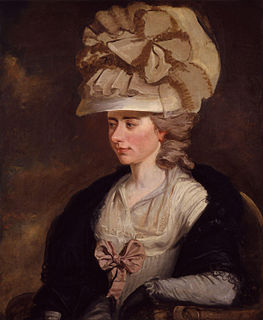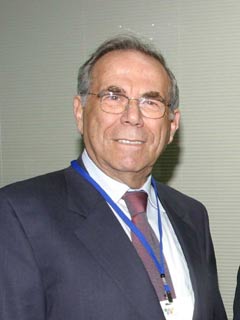A Quote by James Russell Lowell
He gives us the very quintessence of perception,-the clearly crystalized precipitation of all that is most precious in the ferment of impression after the impertinent and obtrusive particulars have evaporated from the memory.
Quote Topics
Related Quotes
We may think it humility not to realize that the Lord is bestowing gifts upon us. Let us understand very, very clearly, how this matter stands. God gives us these gifts for no merit of ours. Let us be grateful to His Majesty for them, for, unless we recognize that we are receiving them, we shall not be aroused to love Him. And it is a most certain thing that, if we remember all the time that we are poor, the richer we find ourselves, the greater will be the profit that comes to us and the more genuine our humility.
But pain may be a gift to us. Remember, after all, that pain is one of the ways we register in memory the things that vanish, that are taken away. We fix them in our minds forever by yearning, by pain, by crying out. Pain, the pain that seems unbearable at the time, is memory's first imprinting step, the cornerstone of the temple we erect inside us in memory of the dead. Pain is part of memory, and memory is a God-given gift.
I think you can take the recent war in Lebanon as a very good example of how this plays. The Americans and their allies clearly stood back - clearly in the eyes of Muslims - and basically said to the Israelis, "Do what you need to do, and we'll hold the ring for you and not call a cease-fire." That perception in the Muslim world very much played to the anti-American sentiment.
Memory is therefore, neither Perception nor Conception, but a state or affection of one of these, conditioned by lapse of time. As already observed, there is no such thing as memory of the present while present, for the present is object only of perception, and the future, of expectation, but the object of memory is the past. All memory, therefore, implies a time elapsed; consequently only those animals which perceive time remember, and the organ whereby they perceive time is also that whereby they remember.
I was forced to fall back upon the unsatisfactory conclusion, that while, beyond doubt, there are combinations of very simple natural objects which have the power of thus affecting us, still the analysis of this power lies among considerations beyond our depth. It was possible, I reflected, that a mere different arrangement of the particulars of the scene, of the details of the picture, would be sufficient to modify, or perhaps to annihilate its capacity for sorrowful impression.







































